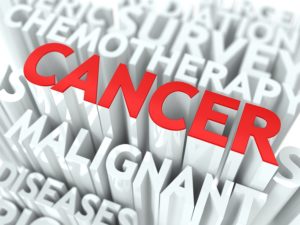
Is Your Senior at Increased Risk for Lung Cancer?
Awareness is one of the most important tools you can use as a family caregiver to protect your aging parents, and help them to live the healthiest, most satisfying life possible as they age in place.
When it comes to serious health issues such as lung cancer, understanding the risk factors your senior faces is a critical step toward knowing what you can do to help them prevent lung cancer, but also to prepare you to give them the care and support they need should they be diagnosed with lung cancer.
Some factors that may cause your parent to be at increased risk for developing lung cancer include:
Being of an advanced age. The vast majority of people who are diagnosed with lung cancer are over the age of 65, and the risk for developing disease increases with age. The average age for diagnosis is 70.
Family history. Some studies have indicated that there is a genetic link to lung cancer, though that is not always present. If your senior has immediate family members, such as a parent or child, who has been diagnosed with lung cancer, they may be at increased risk. This increased risk is present even among non-smokers and is higher among those with several family members with the disease.
Personal history of the disease in the lungs. If your senior has suffered chronic illnesses to the lungs, such as chronic bronchitis or tuberculosis, their lungs may have scarring that puts them at higher risk.
Smoking. The single most pressing risk factor that your aging parent can affect is smoking. The Centers for Disease Control and Prevention note that approximately 90% of all deaths related to lung cancer are caused by smoking. The more cigarettes, cigars, or pipes your parent smokes, the higher their risk. Also, the longer they have smoked, the higher their risk.
Eating an unbalanced diet. Not eating a healthy diet increases the risk for virtually all health problems. Eating a varied diet is critical to giving the body the nutrients it needs to stay healthy and resilient and fight off disease.
Exposure to environmental hazards. Radon gas, asbestos, and a variety of industrial and other chemicals are very dangerous for the body and can increase the risk of lung cancer. If your aging parent was exposed to any of these while they were working, they are still at higher risk for the disease. They could also be exposed to radon in their own home, which makes it essential to have their home tested.
Knowing your aging parent is at increased risk for suffering health complications or diseases is an important step toward protecting their health and well-being as they age.
As a family caregiver, educating yourself about your parent’s condition and their needs is a critical part in making sure they have the care necessary to manage these needs in the ways that are right for them, while also helping them to live a lifestyle that they desire and deserve.
Part of this may be starting senior care for them. Having a senior home care services provider with your parent can give them the opportunity to receive care and assistance tailored specifically to them, and their needs. This means they are able to stay safer and healthier and their own home, while also maintaining as much independence, activity, and fulfillment as possible throughout their later years.
Starting senior care for an aging parent early in a journey with a health complication, or even before they are diagnosed, gives your parent the most control and power over their own health, and quality of life so both of you can feel more confident as they age.
